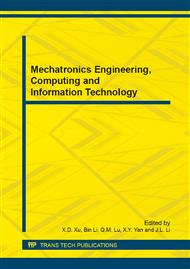p.1622
p.1627
p.1631
p.1636
p.1643
p.1647
p.1652
p.1656
p.1660
Active Power Optimization Considering both Generation Cost and Network Loss
Abstract:
In order to improve the calculation efficiency, active power and reactive power are usually optimized separately in optimal power flow considering the decoupling characteristic. However, this would decrease the economy performance of power system. This paper proposed a weighting factor to formulate a multi-objective model, combining the generation cost and system network loss together. The optimization problem is performed using genetic algorithms and quadratic programming respectively. Finally, the feasibility and efficiency of the proposed model are verified with the IEEE 14 Bus test system.
Info:
Periodical:
Pages:
1643-1646
Citation:
Online since:
May 2014
Authors:
Price:
Сopyright:
© 2014 Trans Tech Publications Ltd. All Rights Reserved
Share:
Citation:


